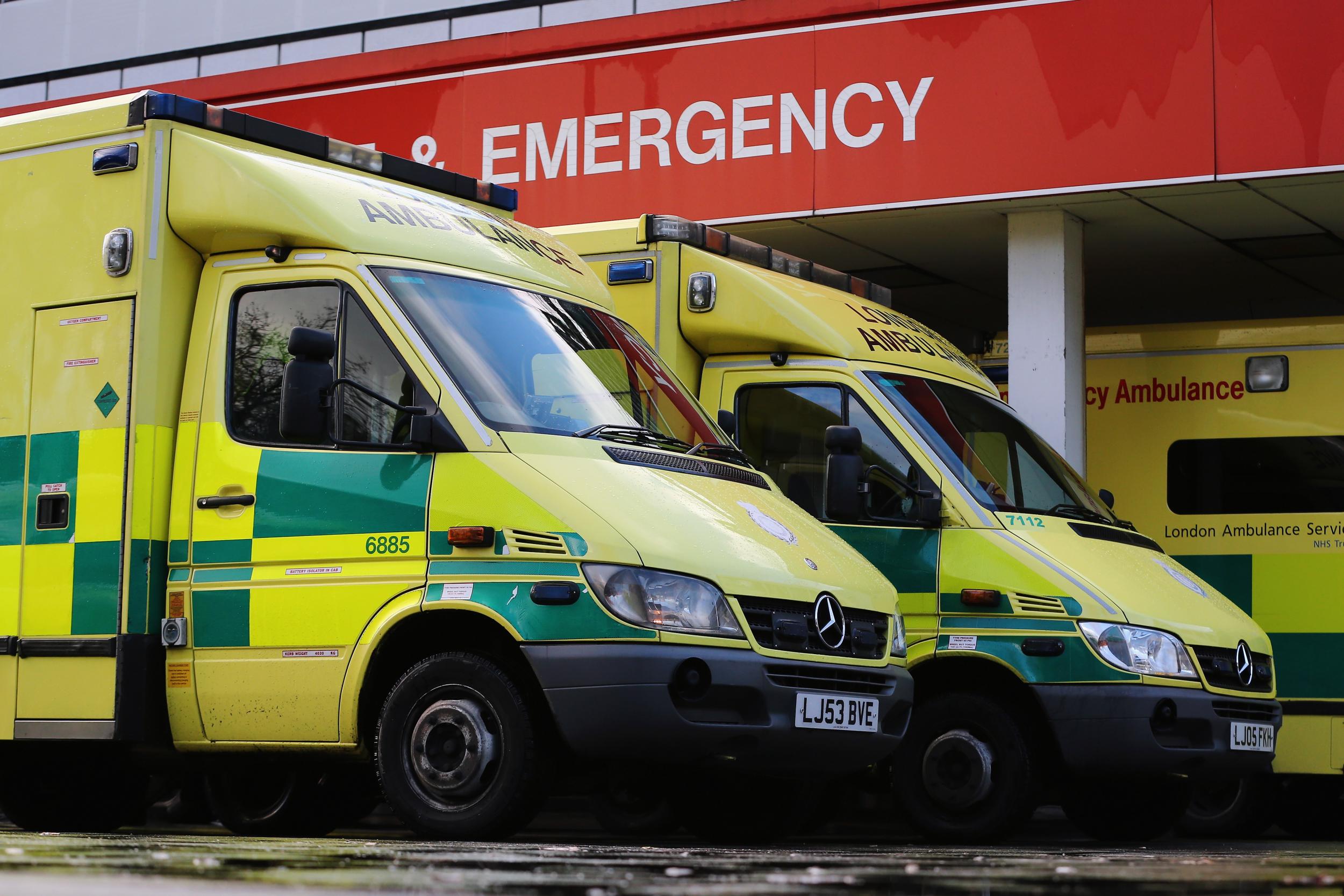Only four hospitals in England hit A&E targets as staff claim exceptional pressures have become ‘the norm’
Shadow Health Secretary claims data from first three months of the year represents ‘Black Thursday for the NHS’ and that the health service could now be said to be in a state of ‘constant crisis’

Only four hospitals in England hit Government A&E targets in the first three months of 2016, new figures reveal, as frontline NHS staff warned that growing demand and squeezed spending have led to pressures on hospitals that were once considered exceptional becoming “the norm”.
Official figures on NHS performance for March confirmed that 2015/16 was the busiest year on record for A&E departments in England, with 22.9 million attendances. In that time, just under 92 per cent of patients at all A&Es were dealt with in less than four hours – the worst performance since 2003/04, but still, NHS England said, one of the best in the Western world.
However, the monthly figures show that waiting times performance has deteriorated rapidly, for A&E and for routine operations. The number of patients in March who had been on a waiting list for more than 18 weeks was 298,747, up from 206,032 in the same month last year. At hospital A&Es, only 80.9 per cent were seen within four hours, down from 88.9 per cent for the same time last year, and 95.3 per cent for March 2011.
The Royal College of Nursing said that the figures reflected “the unfortunate reality” of everyday life on England’s A&Es, while Labour’s shadow Health Secretary, Heidi Alexander, claimed the publication of the data represented “Black Thursday for the NHS” and said the health service could now be said to be in a state of “constant crisis”.
However, the Department of Health said that hospitals were coping well with increased demand.
Richard Barker, national director of commissioning operations and information at NHS England said that March had been “particularly busy” with more than two million people treated at A&E. He said demand had been increased by a delayed spike in flu cases, adding that delays in securing care outside of hospital for patients and the junior doctor strikes, had also had an impact.
Anna Crossley, the RCN’s emergency care specialist, said the figures would come as no surprise to frontline staff.
“A&E departments are facing huge challenges in caring for so many patients, to the point that what used to be exceptional pressure is now becoming the norm,” she said.
“Emergency care is running on the goodwill and effort of dedicated staff, but that cannot sustain it forever,” she added. “If the exceptional is now the new norm, we have to be concerned about any additional pressures which could cause the system to be completely overwhelmed.”
Ms Alexander blamed the deterioration in performance on cuts to social care services, which she said had left “hundreds of thousands of older people without the support they need to live at home independently.”
“This is leaving many people with no choice but to go to A&E,” she said. “Ministers can’t sit back and allow this crisis to go on any longer.”
John Appleby, chief economist at the leading King’s Fund health think tank, agreed that investment in social care services, which are funded by councils, could help to reduce demand on hospitals as well as speeding up the process of moving patients out of hospital beds after recovery.
A Department of Health spokesperson said: “The NHS is very busy but hospitals are coping well with increased demand, with 21,000 more people seen in A&E within four hours compared to March last year - despite having to manage the added pressures of industrial action and the very real impact this has had on patients and staff.
“We are committed to delivering a safer seven day NHS which is why we have invested £10bn to fund the NHS's own plan to transform services in the future.”
Join our commenting forum
Join thought-provoking conversations, follow other Independent readers and see their replies
Comments